 Petzlover
Petzlover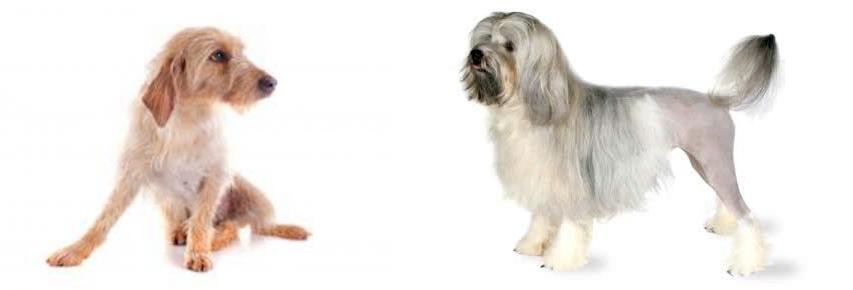 Basset Fauve de Bretagne is originated from France but Lowchen is originated from Germany. Both Basset Fauve de Bretagne and Lowchen are having almost same height. Basset Fauve de Bretagne may weigh 10 kg / 23 pounds more than Lowchen. Both Basset Fauve de Bretagne and Lowchen has same life span. Both Basset Fauve de Bretagne and Lowchen has same litter size. Basset Fauve de Bretagne requires Low Maintenance. But Lowchen requires Moderate Maintenance
Basset Fauve de Bretagne is originated from France but Lowchen is originated from Germany. Both Basset Fauve de Bretagne and Lowchen are having almost same height. Basset Fauve de Bretagne may weigh 10 kg / 23 pounds more than Lowchen. Both Basset Fauve de Bretagne and Lowchen has same life span. Both Basset Fauve de Bretagne and Lowchen has same litter size. Basset Fauve de Bretagne requires Low Maintenance. But Lowchen requires Moderate Maintenance
 The Basset Fauve de Bretagne from France was introduced to the UK in 1983, and this smallest of the French hounds is rarely seen outside France, and when you do it is in Britain. This French hunting breed belonging to the Hound group in all likelihood descends from the Grand Fauve de Bretagne which is now extinct.
The Basset Fauve de Bretagne from France was introduced to the UK in 1983, and this smallest of the French hounds is rarely seen outside France, and when you do it is in Britain. This French hunting breed belonging to the Hound group in all likelihood descends from the Grand Fauve de Bretagne which is now extinct.
Long ago the dog was used for hunting and there was even a time when it was on the brink of extinction.The breed became very rare but was later bred with the Basset Griffon Vendeen as well as the Wire Haired Dachshund which has resulted in the breed we have today. The first Basset Fauve was imported into the USA in November 2001.
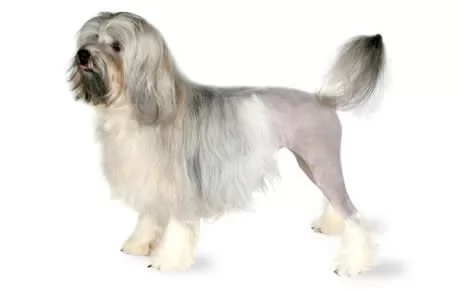 Known as the Little Lion Dog, the Lowchen is considered by some registries as a toy dog and by the American Kennel Club as a non-sporting dog.
Known as the Little Lion Dog, the Lowchen is considered by some registries as a toy dog and by the American Kennel Club as a non-sporting dog.
Nobody seems too certain about the true origin of the dog but most records seem to suggest it originates from Germany, France or Holland.
He was bred to catch rats and mice and his history goes way back to 1442, with images of him being found in engravings and paintings. People think he may be related to the Bichon Frise.
His history shows that apart from being used to catch vermin he was also a companion dog to the wealthy. A breeding program for the dog was started in 1944 and they were later imported to Britain in the late 1960s. The dog was given Kennel Club recognition in the UK in 1971, also appearing in America in 1971 with The Lowchen Club of America being formed.
 The Basset Fauve de Bretagne is a smallish hound, with a long body and deep chest. He is lively and friendly. He is a wire-coated dog, looking similar to a golden cocker spaniel, but his coat is coarse and quite springy and wiry to the touch. He is nimble, he has plenty of courage, he is lively, friendly and amenable. He has short legs, but unlike other Basset breeds, these don’t have that crooked, turned outwards appearance that the Basset Hound has.
The Basset Fauve de Bretagne is a smallish hound, with a long body and deep chest. He is lively and friendly. He is a wire-coated dog, looking similar to a golden cocker spaniel, but his coat is coarse and quite springy and wiry to the touch. He is nimble, he has plenty of courage, he is lively, friendly and amenable. He has short legs, but unlike other Basset breeds, these don’t have that crooked, turned outwards appearance that the Basset Hound has.
The tail is fairly long and held upright when the dog is alert. He has long low-set ears which reach roughly to the end of the nose. The coat is always wheat- or fawn or red in color. The Basset Fauve de Bretagne, also referred to as the Fawn Brittany Basset isn’t quite as low to the ground as the Basset Hound, measuring 32 – 38 cm.
Small, stocky and feisty, this rough-coated Basset is energetic, agile and quick and you’ll find that he gets on well with children as well as other pets in the house. Some training and socialization will go a far way to make him an even more super dog than what he is. He’ll make a wonderful family pet and will adapt well to country living as well as living in the city, if he can rely on you to take him for walks.
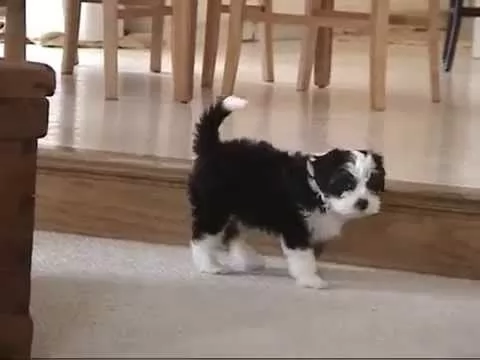 The Lowchen is a small dog but robustly built and stands at between 25 – 33 cm in height and weighs anything from 4 – 8 kg.
The Lowchen is a small dog but robustly built and stands at between 25 – 33 cm in height and weighs anything from 4 – 8 kg.
He has a long coat which is available in a number of colors - cream, white, grey, black, silver and bi-colored. The single coat isn’t like that of the Bichon Frise, thin and fluffy, but is much thicker, silky and wavy and sheds minimally. People love snipping the long coat cut so that the dog looks like a small lion, short over the body and with a mane, with some hair left around the ‘ankle’ parts of the legs.
The tail is also sheared and left with a pom-pom look. People look at him as an ideal pet as he doesn’t shed much and is looked upon as being a hypoallergenic dog.
He has a wide muzzle and broad, flat skull. The ears are floppy with fringing, the eyes dark, round and intelligent looking. The litter size of this dog is is usually between 3 and 6 puppies.
Intelligent, bright, outgoing and affectionate, you won’t find any aggression in this cute little dog unless the owners have treated him so badly that he wants to be aggressive.
He is such an amicable little pet that he won’t cause you any trouble – he just wants to be your friend. He is a social dog, but can be quite timid when introduced to new people.Socialization and training will do wonders for him and give him some confidence.
He just loves receiving attention and is also prepared to give a lot of attention too. Although he can adapt easily to life in the city or the countryside, he wouldn’t like his owners being at work all day and leaving him alone hour after hour. He is gentle with his human family and sees to it that he gets on well with children as well as pets in the home.
 Smart and courageous, the Basset Fauve is such a wonderful pet to have in your home. He is gentle, loving and loyal and will adapt to living in the countryside or the city, so long as he is loved, fed well, exercised and given lots of attention.
Smart and courageous, the Basset Fauve is such a wonderful pet to have in your home. He is gentle, loving and loyal and will adapt to living in the countryside or the city, so long as he is loved, fed well, exercised and given lots of attention.
He was once a serious hunter, but these days he is most content to be friend and protector for his human family.
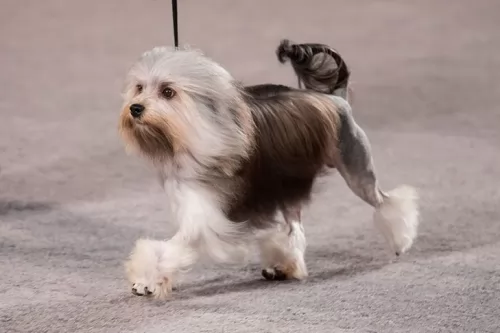 The Lowchen is sure to make anyone a splendid pet as he is friendly, playful, loving and loyal. He is such a good natured pet and will make a wonderful companion, being able to get on well with children and pets in the home.
The Lowchen is sure to make anyone a splendid pet as he is friendly, playful, loving and loyal. He is such a good natured pet and will make a wonderful companion, being able to get on well with children and pets in the home.
He is energetic too and will love to be outside playing games or joining you on a walk. Those who have had the Lowchen as a pet haven’t been disappointed as they all agree that he makes the most amazing family companion.
 The Basset Fauve is free from inherited health problems in the UK and is in fact one of the hardiest of the Basset group. Like all Basset type breeds, as a dog owner you’ll have to keep an eye on your Basset Fauve as he can develop back problems as he gets older.
The Basset Fauve is free from inherited health problems in the UK and is in fact one of the hardiest of the Basset group. Like all Basset type breeds, as a dog owner you’ll have to keep an eye on your Basset Fauve as he can develop back problems as he gets older.
When it comes to your Basset Fauve’s health, make sure he gets all his shots, starting from when he is a puppy. Many of the dangerous canine diseases can be prevented with vaccines.
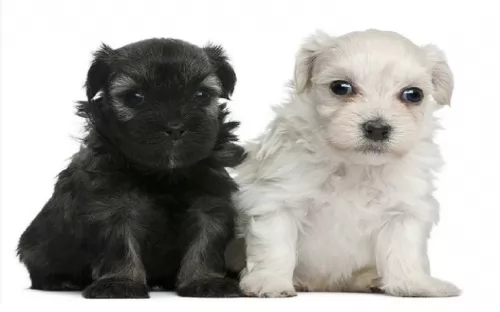 The Lowchen is a healthy dog breed so you aren’t going to be spending too much money with him at the vet. Some health concerns with this particular dog breed are cataracts and patellar luxation.
The Lowchen is a healthy dog breed so you aren’t going to be spending too much money with him at the vet. Some health concerns with this particular dog breed are cataracts and patellar luxation.
It can be so sad witnessing your dog’s bright, alert eyes clouding over. Dogs have clear lens, but cataracts, while not painful, can impair vision and actually lead to complete vision loss. As the eye disease progresses, the lens can become completely opaque.
This occurs when the kneecap of the dog is dislocated from its normal position. You’ll see your dog holding up his hind leg every now and then. It can only be returned to its normal position once the quadriceps muscles of the dog relax.
This is a common knee joint problem in dogs and it can lead to arthritis. He will need to get to the vet.
 The Basset Fauve is easy to maintain, and all that is required from you is to brush his wiry coat at least twice a week to remove all loose hairs. Look out for too much hair in the ear passage and remove it. The teeth should be brushed a couple of times a week with a dog toothpaste and brush to avoid plague build-up and the claws should also be trimmed.
The Basset Fauve is easy to maintain, and all that is required from you is to brush his wiry coat at least twice a week to remove all loose hairs. Look out for too much hair in the ear passage and remove it. The teeth should be brushed a couple of times a week with a dog toothpaste and brush to avoid plague build-up and the claws should also be trimmed.
Daily walks will be imperative for your Basset Fauve as he is an energetic dog and will need regular exercise. Just ignoring his energetic side will make him frustrated, bored and even destructive.
This breed of dog used to hunt small game and so he is lively and energetic. Because of this he will need a high-quality dog food. Always buy the best commercially manufactured dog foods and speak to your vet about the best one, and whether dry- or wet foods would best suit your canine friend. You want to provide your pet with variety, and it is imperative to include some raw- and cooked meat to his regular dog food to ensure he doesn’t battle with an itchy, dry skin.
Dog foods suited to age, activity levels and stage of life can ensure your dog is always energetic, full of life, healthy and happy and not prone to putting on weight. Always ensure that clean, cool water is constantly available to your pet.
If you get a puppy from a reputable breeder, they will tell you what the puppy’s feeding schedule has been. Make sure to stick to the same routine for a while so that your puppy doesn’t have any tummy upsets.
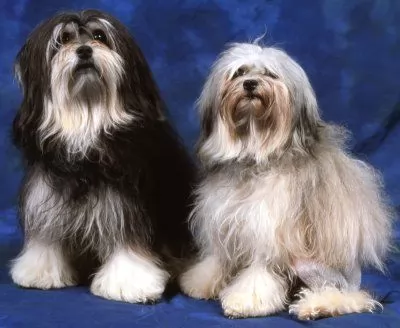 Because your Lowchen is a bright, happy companion dog you want to ensure that you look after him well to ensure his ongoing wellbeing.
Because your Lowchen is a bright, happy companion dog you want to ensure that you look after him well to ensure his ongoing wellbeing.
The single coat is long and you will need to brush him regularly to keep it looking good. If brushing becomes too hectic, you can have him sheared at a professional dog groomer.
Check him over for fleas and ticks while brushing him.
Feel all over his body for the emergence of new lumps.
Clip his nails to ensure they don’t grow long so that they hook on things and tear his flesh.
Check the inside of his ears to make sure there is no sign of redness and ear infection. This can drive your pet mad with the itching. The ears need to be kept clean, as do the teeth and both these can be done for you at professional dog groomers.
Every dog requires exercise and your Lowchen will need games and walks to keep him fit, to ward off obesity and to provide him with something to look forward to.
Make sure to feed your pet wholesome food as good quality food promotes good health and longevity. Give your Lowchen the best quality kibble there is and try and mix in some homemade cooked chicken, brown rice, pasta and cooked or raw vegetables every now and then just to add some tasty variety to your pets diet. Make sure he always has access to fresh, cool water.
Make sure your Lowchen has a warm, dry comfy spot to sleep, and ensue that when he’s outside he has shade to lie down in.